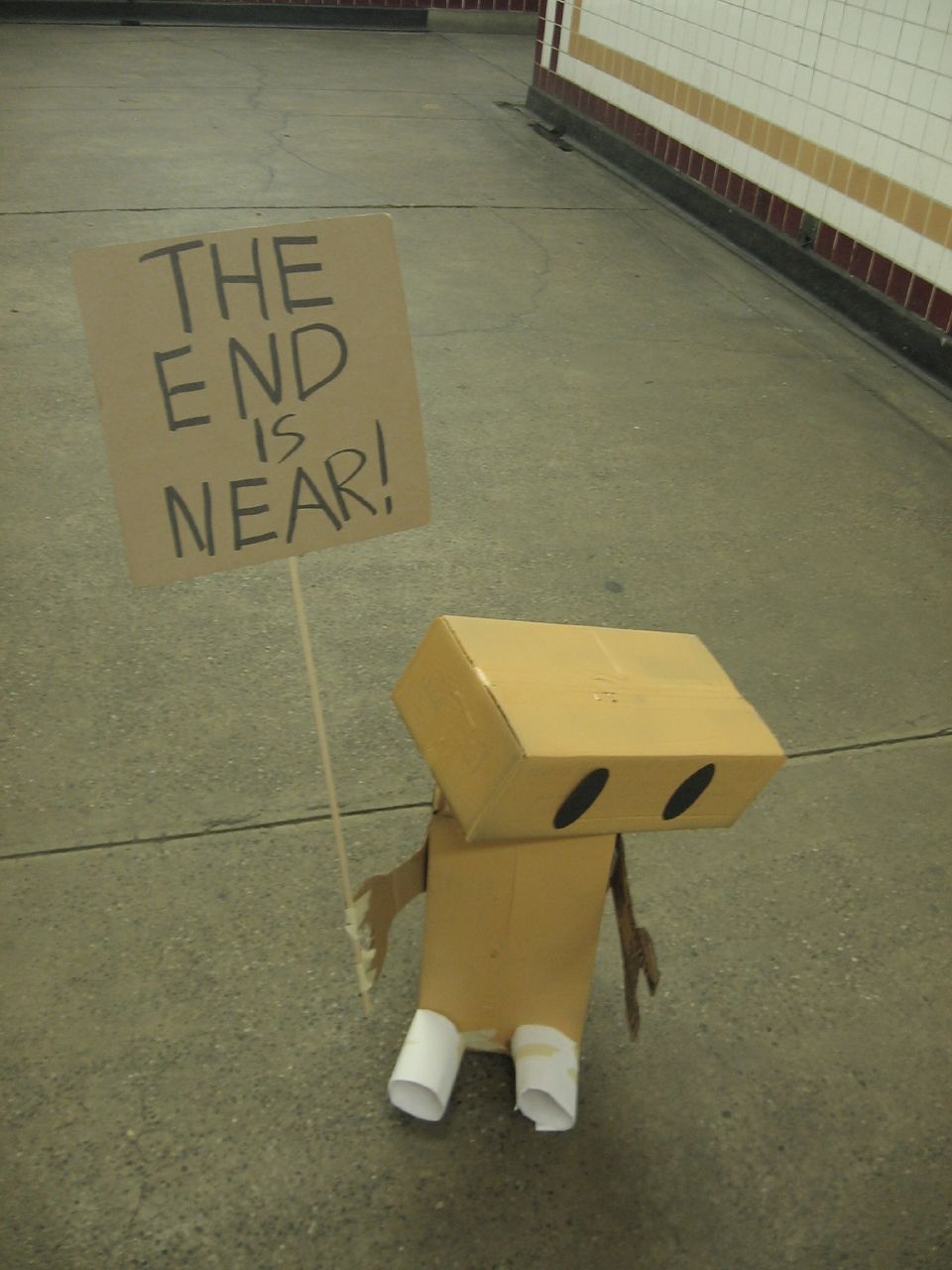
photo credit: LuvataciousSkull via photopin cc
When I was in high school I was concerned about the end. Not just the end of my own life, but the end of time. Part of it was that our school had a very active Mothers Against Drunk Driving group, and our own mortality was constantly being driven into us. From car wreck displays to mock funerals, I was pretty sure my end was imminent. Another huge contributing factor to my morbid nervousness was that I had just moved from Canada to Mississippi, and for the first time I was experiencing ‘American Evangelical Christianity.’ I was hearing alter calls for the first time, and people were asking “Are you saved?” I remember the first time I heard that question, I kept thinking “From what?” When I asked my friend what I was supposed to be saved from, she simply said “Hell.” Add into this equation that a friend in my fourth period class had a recurring dream about the end of times and Jesus appearing; and I was a little nervous that at any moment Jesus could come back or I could somehow cease to exist. I am pretty sure that isn’t how we are supposed to live this life: afraid that at any moment it could all end! I recently asked my twitter friends and followers “What do you think about the end?” A friend who had a similar experience wrote, “The irony is that at some point that sort of view leads to ‘Please Jesus, don’t return!’ to downright cynicism.”
Are we as Christians ‘End’ obsessed; of our own end and that of the entire of creation? Maybe it’s not just Christians. Recently, there have been many movies released that are apocalyptic in nature. There is about to be yet another Terminator in theaters; clearly termination is something we are all a little nervous about. So what happens in the end?
I have seen some clever bumper stickers in response to this renewed interest in the end times. One was a bumper sticker that said “In case of rapture: caution this car will be unmanned.” My favorite bumper sticker was one that retorted, “In case of rapture, can I have your car?” A couple of years ago, someone decided that the end of times would be on a certain date. This person purchased billboards around Orange County and L.A. to make people aware that the ‘End’ was coming. One of my pastoral colleagues reacted to this in a humorous way: on the date that the billboards dictated, his family got up early and placed their shoes and clothes out on the lawn indicating that they had been taken. Clearly the ‘End’ isn’t as predictable as the billboards would have you believe.
I am not an ‘End Times’ expert. What little knowledge I have is information that I have taken from my readings of several scholars and classes on the New Testament book of Revelation. I know that there are sects of the Faith that spend a good deal of time thinking about what the end of our current lifestyle will be, but I don’t think it is as clear-cut as they suggest, even if you take the Bible somewhat literally. The way that many people understand the end is fairly new in conception. It has really only been in the last 150 years that we as Christians have believed in this rapture-style end. The idea of rapture being the notion that Christ comes back and hovers over earth, having raptured his favorites to hover with him while the rest of creation suffers. This apocalyptic understanding primarily comes from the minister John Darby and his writings on Dispensationalism. His work focuses on his own understanding of Revelation and other New Testament prophecies.
The debate over what will happen in the end times, and really any reading of Revelation, is the understanding of the word ‘prophecy’ – the Greek word ‘prophéteia.’ The word doesn’t mean ‘fortune-telling’ – it isn’t about foretelling, but more about ‘telling forth.’ By that I mean that prophets were cultural commentators, and they were speaking about the current truth and the potential for judgment upon that current truth. Essentially, a prophet was a truth-teller; so any vision was really a vision about a present reality. The author of Revelation was writing about societal issues that were dangerous to critique at the time; so it appears to be written in a code that was completely understandable in all of its nuances only to those that the letter was directed to. This would be much like us sending a cartoon of an elephant and a donkey that are wrestling to a foreign country that didn’t know these animals represented American political symbols. The cartoon wouldn’t make any sense to them, and worse, any interpretation would say more about the interpreter than the message of the cartoon itself. So what can we learn about the end from the Bible? For that you will have to wait until my next blog…
*For a great look at Dispensationalism, check out “Adventures in Missing the Point – How the Culture Controlled Church Neutered the Gospel” By Tony Campolo and Brian D. McLaren. They have an excellent chapter on the End Times
Good read. Keep’em coming.
Thanks Pat! I hope that this sometimes controversial topic is one that people are interested in and that maybe I can help reframe the conversation around 🙂 blessings Sarah
Sarah, I find conversations on this topic fascinating too. I grew up totally afraid that the 3rd World War was coming and that we would nuke ourselves out of existence. I spend quite a bit of time on this topic myself and expect that in a short time our lives will be very different. I also believe “the end” means the beginning of better times. At the end of 2012 I wrote this poem about the end of time. http://www.dianerheos.com/may-122112-be-the-end-of-the-world/